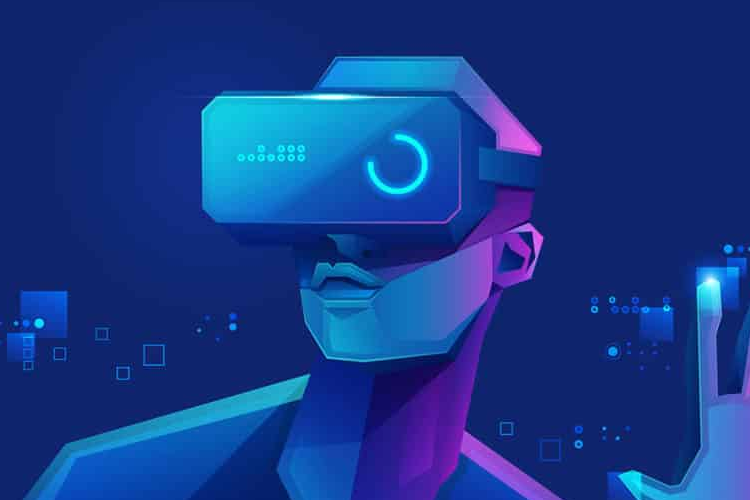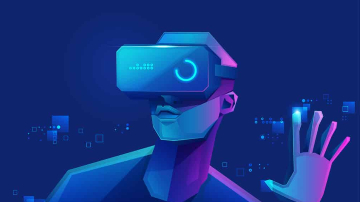
Virtual reality (VR) is a rapidly developing technology that is revolutionising the way we interact with digital content. It refers to a computer-generated environment that simulates real-life experiences, allowing users to fully immerse themselves in a simulated world. With the rapid advancements in hardware and software, virtual reality has become more accessible and affordable, making it one of the most exciting areas of technology today.
Virtual reality technology has applications in a wide range of industries, including entertainment, healthcare, education, and even military training. In the entertainment industry, VR is already being used to create immersive gaming experiences that go beyond what traditional games can offer. With VR, users can fully immerse themselves in a game world, making it feel like they are actually there.
In the healthcare industry, VR is being used for a range of applications, including pain management, exposure therapy, and surgical training. For example, VR is being used to create immersive environments that help patients manage their pain, reducing their reliance on medication. Additionally, VR is being used to help patients overcome phobias and anxiety through exposure therapy, allowing them to face their fears in a safe and controlled environment.
In education, VR is being used to create interactive learning experiences that engage and motivate students. For example, VR can be used to create virtual field trips, allowing students to explore historical sites or experience scientific phenomena that would otherwise be impossible to access. Additionally, VR can be used to create interactive training simulations, allowing students to practise real-world scenarios in a safe and controlled environment.
The military is also utilising VR technology for training purposes. With VR, soldiers can experience simulated combat scenarios, allowing them to practise and hone their skills in a safe and controlled environment. This can help to reduce the risk of injury or death during training exercises and can ultimately lead to improved combat readiness.
One of the most exciting aspects of VR technology is its potential for social interaction. With VR, users can interact with each other in a virtual environment, allowing for social experiences that go beyond what is possible with traditional social media platforms. For example, users can attend virtual concerts or sporting events, interact with each other in virtual environments, or even attend virtual business meetings.
Virtual reality technology is a rapidly developing field that has the potential to revolutionise the way we interact with digital content. With applications in a wide range of industries, from entertainment and healthcare to education and the military, VR is set to have a significant impact on the way we work, play, and learn. As the technology continues to evolve and become more accessible, the possibilities for its use are virtually limitless.







